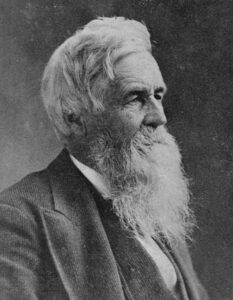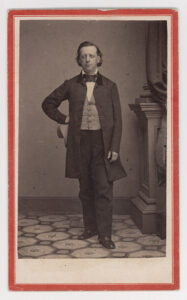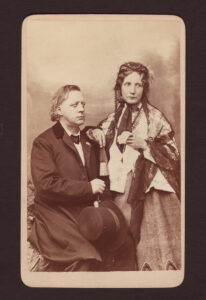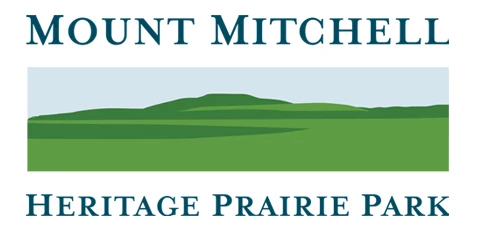
BEECHER BIBLE AND RIFLE COLONY
The Story of the Beecher Bible and Rifle Colony and the Sharps Rifle
 When harsh winter weather put a stop to the violence between proslavery and free-state settlers in December of 1855, the free-state leaders returned to their previous homes in the east to raise money and hold public meetings in support of their cause.
When harsh winter weather put a stop to the violence between proslavery and free-state settlers in December of 1855, the free-state leaders returned to their previous homes in the east to raise money and hold public meetings in support of their cause.
What became known as the Wakarusa War had started when a proslavery settler killed a free-state neighbor near Lawrence. It escalated into violent actions on both sides and the eventual siege of Lawrence by 1,500 proslavery Missourians. The conflict became known throughout the country as Bleeding Kansas, with newspaper headlines proclaiming “WAR IN KANSAS.”
After hearing free-state leaders Eli Thayer and General Samuel Pomeroy speak at a meeting in New Haven, Connecticut, Charles Lines, a local cabinetmaker, was inspired to form a company of emigrants for Kansas. Meetings were held and the Connecticut Kansas Colony was organized. Lines was elected its leader.
 Meanwhile, the popular and eloquent abolitionist preacher Henry Ward Beecher, brother of Harriet Beecher Stowe, the author of Uncle Tom’s Cabin, was advocating arming emigrants to Kansas with Sharps rifles. The Sharps rifle, manufactured in Hartford, Connecticut, was the AK-47 of its time. It was vastly superior to arms available to proslavery forces.
Meanwhile, the popular and eloquent abolitionist preacher Henry Ward Beecher, brother of Harriet Beecher Stowe, the author of Uncle Tom’s Cabin, was advocating arming emigrants to Kansas with Sharps rifles. The Sharps rifle, manufactured in Hartford, Connecticut, was the AK-47 of its time. It was vastly superior to arms available to proslavery forces.
Beecher was the leader of the congregation at Plymouth Church in Brooklyn, New York, but had been born in Connecticut and educated in Massachusetts. A number of the members of the New Haven Company were his personal friends and he took an active interest in their success.
Beecher was widely quoted as having said he believed that, “the Sharps Rifle was a truly moral agency, and that there was more moral power in one of those instruments, so far as the slaveholders of Kansas were concerned, than in a hundred Bibles.” This caused quite a stir, but he got even more national attention when soon after he published a pamphlet titled, “In Defense of Kansas.” In what we can now see as one of the most prescient statements in Civil War history, he wrote,
“A battle is to be fought. If we are wise, it will be bloodless. If we listen to the…counsels of men who have never shown one throb of sympathy for Liberty, we shall have blood to the horse’s bridles. If we are firm and prompt to obvious duty, if we stand by the men of Kansas, and give them all the help that they need, the flame of war will be quenched before it burst forth, and both they of the West, and we of the East, shall, after some angry mutterings, rest down in peace. But if our ears are poisoned by the advice of men who never rebuke violence on the side of power, and never fail to inveigh against the self-defence of wronged Liberty, we shall invite aggression and civil war. And let us know assuredly that civil war will not burst forth in Kansas without spreading. Now, if bold wisdom prevails, the conflict will be settled afar off, in Kansas, and without blows or blood. But timidity and indifference will bring down blows there, which will not only echo in our houses, hitherward, but will, by and by, lay the foundation for an armed struggle between the whole North and South. Shall we let the spark kindle, or shall we quench it now?”
 While the Connecticut Kansas Company was preparing to leave for the prairies of Kansas, a meeting was held on March 20 at the Old North Church in New Haven. As the New York Times reported several days later, “the Church was filled—floor and galleries—with the most prominent citizens of New Haven, including a large number of clergymen of various denominations, and a full quorum of professors from the faculty of Yale College.” Charles Lines and Henry Ward Beecher made rousing speeches. Lines explained that the Sharps rifles that had been pledged by an individual for the colonists had already been sent to the territory to be used by General Pomeroy. He said that since members of the company had already gone to great expense outfitting themselves, he was making a public appeal for other weapons.
While the Connecticut Kansas Company was preparing to leave for the prairies of Kansas, a meeting was held on March 20 at the Old North Church in New Haven. As the New York Times reported several days later, “the Church was filled—floor and galleries—with the most prominent citizens of New Haven, including a large number of clergymen of various denominations, and a full quorum of professors from the faculty of Yale College.” Charles Lines and Henry Ward Beecher made rousing speeches. Lines explained that the Sharps rifles that had been pledged by an individual for the colonists had already been sent to the territory to be used by General Pomeroy. He said that since members of the company had already gone to great expense outfitting themselves, he was making a public appeal for other weapons.
Beecher spoke about human rights and the differences between the North and the South, saying that the days of compromising two utterly irreconcilable elements were now over. He concluded his remarks by making an appeal to supply the colonists about to depart with arms for their defense. After loud applause, he sat down, and the audience sang John Greenleaf Whittier’s “The Kansas Emigrants,”—which is sung to the tune of “Auld Lang Syne.”
When the song was finished, Yale College Professor Benjamin Silliman stood up and said that self-defense in the cause of freedom is a sacred duty. Adding that he would like to be first on a list of pledges providing funds, he gave $25 for the purchase of one Sharps rifle. The pastor of the church, the Rev. Samuel Dutton, then stood proclaiming, “One of the deacons of this Church, Mr. Harvey Hall, is going out with this Company, and I, as his pastor, desire to present to him a Bible and a Sharps rifle.” Great applause followed and fifteen more pledges were made.
Beecher then rose and said that if funds for twenty-five rifles could be raised on the spot, he would pledge another twenty-five from his Brooklyn congregation. He then solicited bids from the audience in a jovial manner, saying after a Mr. Killam’s pledge, “that’s a significant name in connection with a Sharps rifle.” Soon twenty-seven rifles were pledged, including two from the junior and senior classes at Yale.
According to a New Haven historian, “Such an extraordinary meeting had never been held in an American church, and its proceedings were heralded all over the land, producing from the pro-slavery press a storm of unmitigated denunciation and abuse.”
When Beecher sent a check to Lines honoring his pledge for twenty-five rifles he included with it twenty-five Bibles and a letter meant for publication. When he was raising money to fulfill his pledge he wrote to the cousin of a friend in New Jersey saying,
“I am making up a pledge to furnish the men of my native state, Connecticut, with means of self defence when they are too poor to supply themselves, and if you are willing to aid in the great work I should be glad to have help. We are going to present a Bible with every one of the defensive arms, — and put upon the covers, BE YE STEADFAST, UNMOVEABLE.” The letter that accompanied the check and the Bibles was widely reprinted in newspapers across the country under the headline, BIBLES AND RIFLES FOR KANSAS and BIBLES AND RIFLES IN KANZAS. It was from these events that the company began to be referred to as the “Beecher Bible and Rifle Colony” and the Sharps rifle took on the nickname “Beecher’s Bible.”

